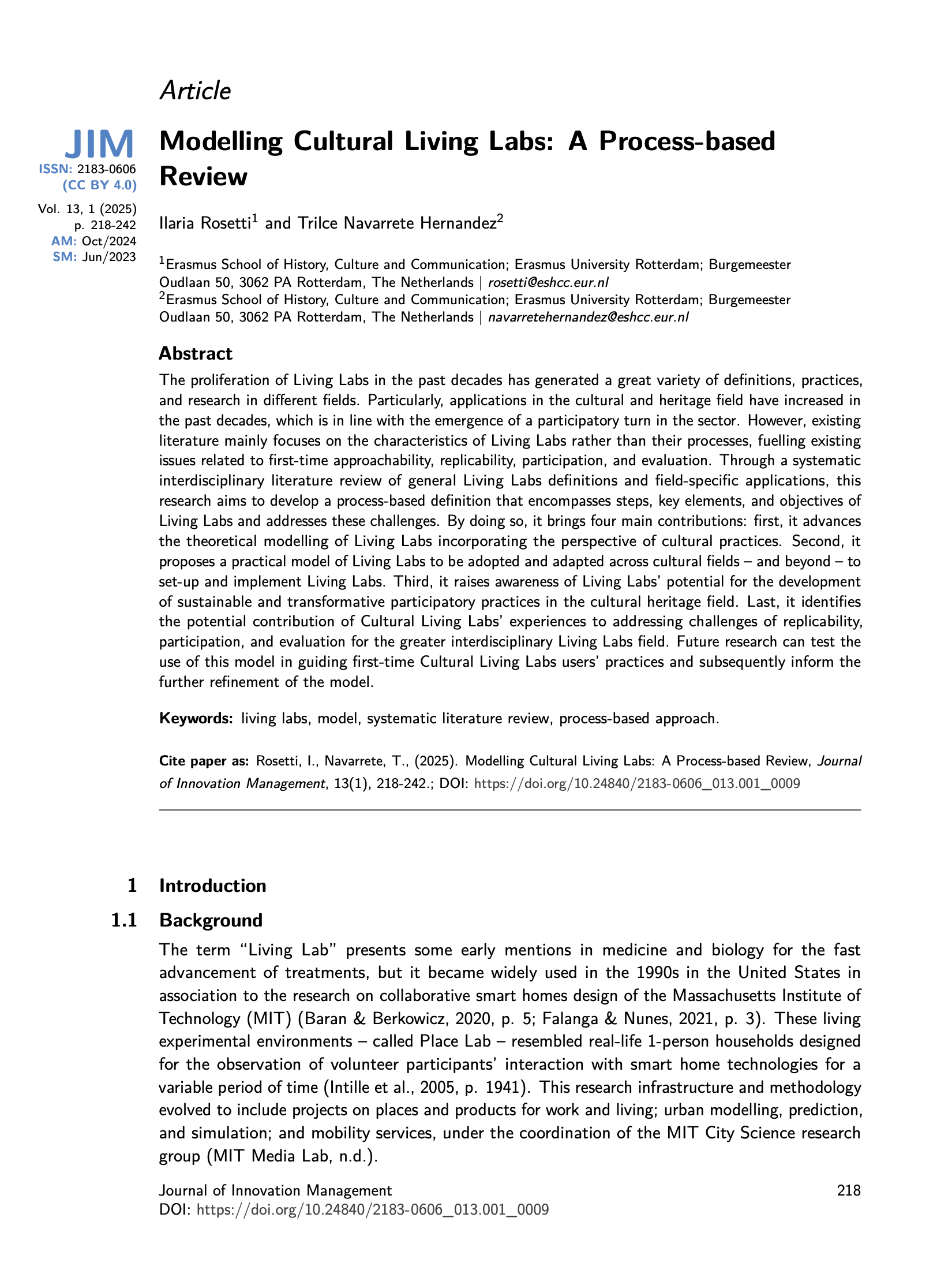Modelling Cultural Living Labs: A Process-based Review [Special Issue on Living Labs and Collaborative Innovation]
Main Article Content
Abstract
The proliferation of Living Labs in the past decades has generated a great variety of definitions, practices, and research in different fields. Particularly, applications in the cultural and heritage field have increased in the past decades, which is in line with the emergence of a participatory turn in the sector. However, existing literature mainly focuses on the characteristics of Living Labs rather than their processes, fuelling existing issues related to first-time approachability, replicability, participation, and evaluation. Through a systematic interdisciplinary literature review of general Living Labs definitions and field-specific applications, this research aims to develop a process-based definition that encompasses steps, key elements, and objectives of Living Labs and addresses these challenges. By doing so, it brings four main contributions: first, it advances the theoretical modelling of Living Labs incorporating the perspective of cultural practices. Second, it proposes a practical model of Living Labs to be adopted and adapted across cultural fields – and beyond – to set-up and implement Living Labs. Third, it raises awareness of Living Labs’ potential for the development of sustainable and transformative participatory practices in the cultural heritage field. Last, it identifies the potential contribution of Cultural Living Labs’ experiences to addressing challenges of replicability, participation, and evaluation for the greater interdisciplinary Living Labs field. Future research can test the use of this model in guiding first-time Cultural Living Labs users’ practices and subsequently inform the further refinement of the model.
Article Details
Authors who publish with this journal agree to the following terms:
- Authors retain copyright and grant the journal right of first publication with the work simultaneously licensed under a Creative Commons Attribution License that allows others to share the work with an acknowledgement of the work's authorship and initial publication in this journal.
- Authors are able to enter into separate, additional contractual arrangements for the non-exclusive distribution of the journal's published version of the work (e.g., post it to an institutional repository or publish it in a book), with an acknowledgement of its initial publication in this journal.
- Authors are permitted and encouraged to post their work online (e.g., in institutional repositories or on their website) prior to and during the submission process, as it can lead to productive exchanges, as well as earlier and greater citation of published work (See The Effect of Open Access).

